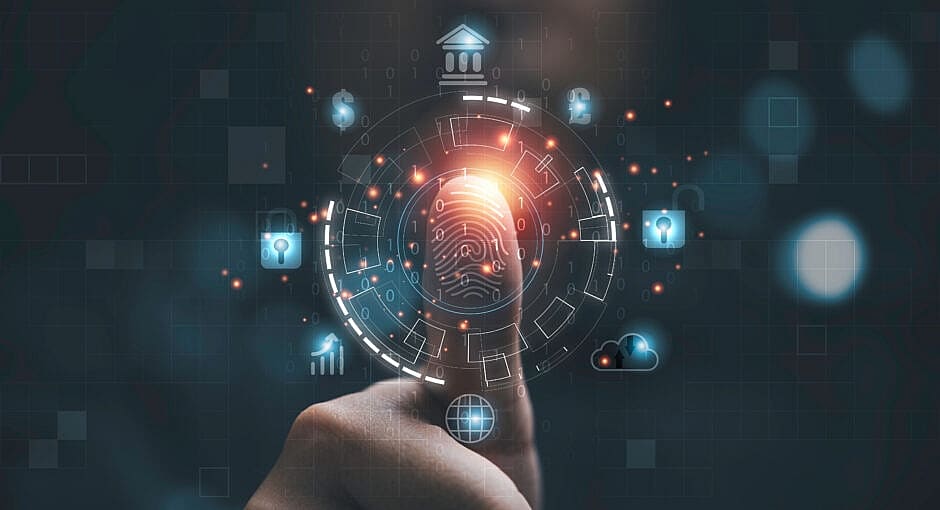In today’s digital age, securing personal and sensitive information is crucial. Traditional methods of authentication, such as passwords, can be easily hacked or guessed, leaving individuals vulnerable to identity theft and fraud. Biometric authentication, on the other hand, relies on unique physical characteristics to verify a person’s identity. This technology is becoming more widespread and is used in various industries, from finance to healthcare. While it has its benefits, there are also concerns around privacy and accuracy that must be considered.
What is Biometric Authentication?
Biometric authentication is the process of verifying an individual’s identity based on their unique physical characteristics. This can include facial recognition, fingerprint scanning, voice recognition, and iris scanning. Biometric authentication is different from traditional authentication methods, such as passwords or PINs, which rely on something that the user knows.
The Benefits of Biometric Security
Enhanced Security
One of the main benefits of biometric security is its ability to enhance security. Biometric authentication is more secure than traditional authentication methods because physical characteristics are unique to each individual, making it nearly impossible for someone to fake or steal.
Convenience
Biometric authentication is also convenient because it eliminates the need for users to remember passwords or PINs, which can be difficult to remember or easily forgotten. It also saves time by reducing the time it takes to log in or verify identity.
Cost-Effective
In the long run, biometric authentication can be cost-effective because it eliminates the need for password resets or replacements due to forgotten or stolen passwords. This can save time and money for individuals and organizations.
Reducing Fraud
Biometric authentication can also reduce fraud because it is nearly impossible to fake or steal physical characteristics. This can be especially useful in industries such as finance or healthcare, where sensitive information must be protected.
Drawbacks of Biometric Security
Privacy Concerns
One of the main concerns with biometric security is privacy. Biometric data is sensitive information that can be used to identify individuals, and there are concerns around who has access to this data and how it is being used.
Accuracy Issues
Another drawback of biometric security is accuracy. While biometric authentication is generally accurate, there are cases where it can fail, such as if an individual’s physical characteristics change over time, or if there is poor lighting or other environmental factors that affect the recognition process.
Vulnerability to Hacking
Biometric security is also vulnerable to hacking, just like any other type of security. Hackers can steal biometric data and use it to gain unauthorized access to sensitive information.
Legal Issues
There are also legal issues surrounding biometric security, including concerns around the use of biometric data and how it is being protected. There are also issues around the use and storage of biometric data, as well as the potential for discrimination based on physical characteristics.
Biometric Security in Practice
Biometric security is being used in various industries, including finance, healthcare, and government. In finance, biometric authentication is used to verify identity for online banking and mobile payments. In healthcare, biometric data is used to ensure the correct patient is receiving medical treatment. In government, biometric authentication is used for border control and national security.
The Future of Biometric Security
As technology continues to advance, so does the potential for biometric security. It is likely that biometric authentication will become even more widespread in various industries, and new technologies will be developed to enhance its accuracy and security. However, it is also important to consider the potential drawbacks and concerns around privacy and accuracy.
Conclusion
Biometric security is becoming more popular as a way to enhance security in various industries. It has benefits such as enhanced security, convenience, and reducing fraud, but also drawbacks such as privacy concerns, accuracy issues, vulnerability to hacking, and legal issues. As biometric authentication becomes more widespread, it is important to consider the potential impact on privacy and accuracy, and ensure that proper safeguards are in place.
FAQs
- Is biometric authentication more secure than traditional authentication methods? Yes, biometric authentication is generally more secure because physical characteristics are unique to each individual, making it nearly impossible for someone to fake or steal.
- What are some industries that use biometric security? Biometric security is used in various industries, including finance, healthcare, and government.
- What are the drawbacks of biometric security? The drawbacks of biometric security include privacy concerns, accuracy issues, vulnerability to hacking, and legal issues.
- How can biometric security reduce fraud? Biometric security can reduce fraud because it is nearly impossible to fake or steal physical characteristics.
- What is the future of biometric security? As technology continues to advance, biometric security is likely to become even more widespread in various industries, and new technologies will be developed to enhance its accuracy and security.






